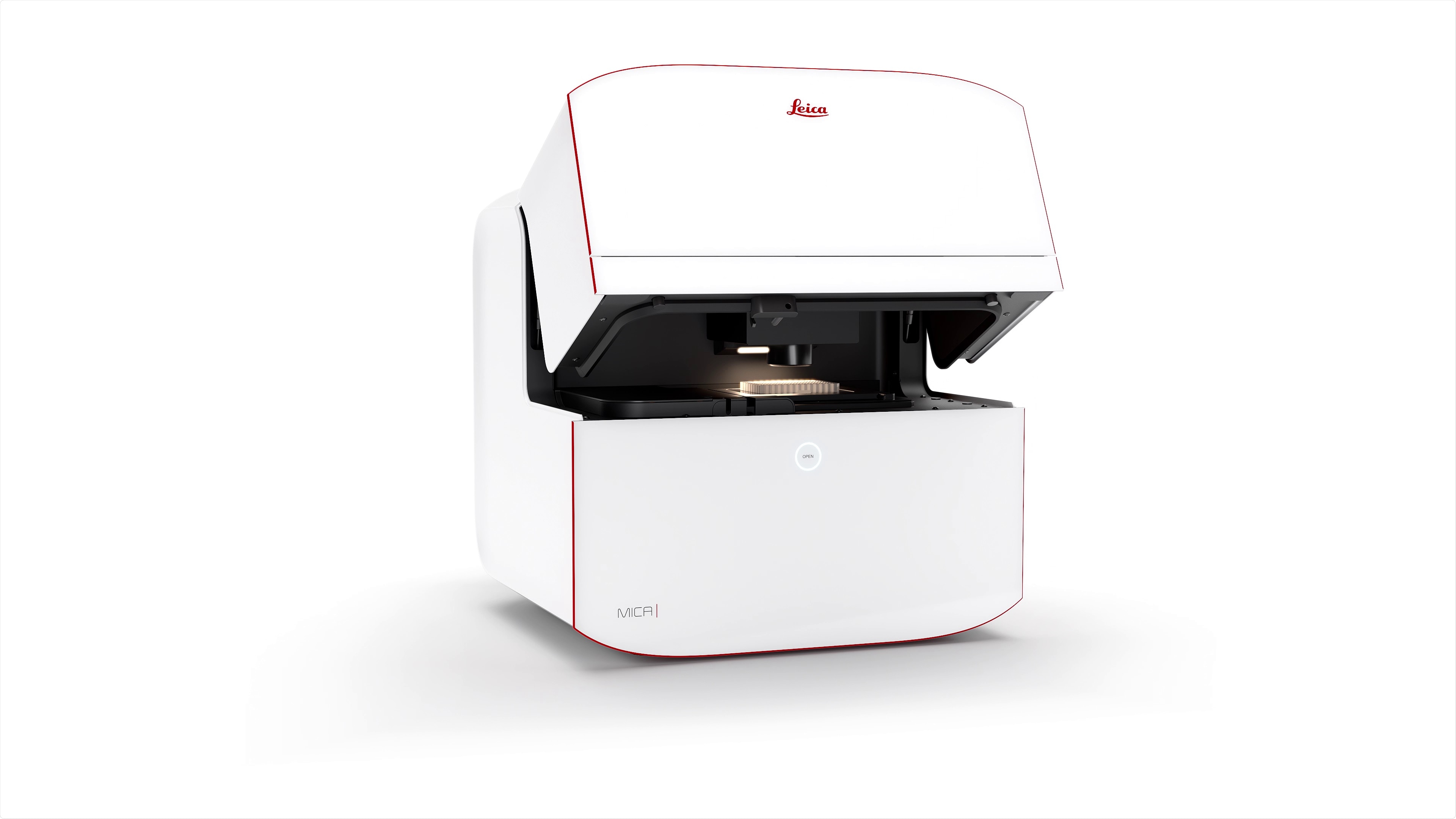New Mica imaging platform from Leica Microsystems brings previously inaccessible experiments to all life science researchers

The new Mica imaging system from Leica Microsystems offers true simultaneous four-label widefield, confocal resolution and AI-supported analysis, all united in a sample-protecting incubator environment. Image Credit: Leica Microsystems GmbH.
03 March 2022, Wetzlar, Germany – Leica Microsystems, a leader in microscopy and scientific instrumentation and a Life Sciences company of Danaher Corporation (NYSE: DHR), has launched Mica, the world’s first Microhub. A Microhub is a new type of wholly integrated imaging solution that leverages machine learning software, automation tools and unique fluorescence unmixing techniques to automate the imaging workflow for researchers, regardless of their microscopy experience levels.
“Research paradigms are constantly evolving, as we have seen with the recent evolution of single cell and transcriptomics. The next frontier is about essentially putting this dissociated information into spatial context, as location is critical to understanding biological mechanisms. The trend is driving more researchers to utilize complex imaging in their research. We have built Mica for these researchers, who need to focus more on their biology than the specialism of microscopy,” says James O’Brien, Vice President Life Sciences at Leica Microsystems. “The Microhub era will supercharge the microscopy experience for everyone.”
All researchers, regardless of expertise, can now work in a single digital imaging platform, moving confidently from setup to beautifully visualized results, allowing true access for all. The Microhub intelligently automates sample-finding, parameter-setting and focus constancy, replacing manual setup with just one push of a button. Mica eliminates over 85 percent of the tedious setup steps in the conventional imaging workflow.
Users can visualize four labels simultaneously in widefield using Leica’s patented FluoSync technology, which offers four times more data with 100% correlation compared to traditional fluorescence imaging methods. They can then switch seamlessly to confocal without moving the sample, to explore unexpected paths with no constraints.
Mica also fully integrates everything a researcher needs for radically simplified workflows, using automation and AI to enable deeper understanding and a faster track to publication. For example, to perform a complex experiment such as a fluorescence multi-well plate assay, the current workflow can be simplified from 24 steps using a conventional microscope to just 8 steps with the use of Mica.
Mica is now available in all regions globally. For more information, please visit https://go.leica-microsystems.com/Microhub
Image & Caption
The new Mica imaging system from Leica Microsystems offers true simultaneous four-label widefield, confocal resolution and AI-supported analysis, all united in a sample-protecting incubator environment.
___________________________________________
About Leica Microsystems
Leica Microsystems develops and manufactures microscopes and scientific instruments for the analysis of microstructures and nanostructures. Ever since the company started as a family business in the nineteenth century, its instruments have been widely recognized for their optical precision and innovative technology. It is one of the market leaders in compound and stereo microscopy, digital microscopy, confocal laser scanning microscopy with related imaging systems, electron microscopy sample preparation, and surgical microscopes.
Leica Microsystems has six major plants and product development sites around the world. The company is represented in over 100 countries, has sales and service organizations in 20 countries, and an international network of distribution partners. Its headquarters are located in Wetzlar, Germany.